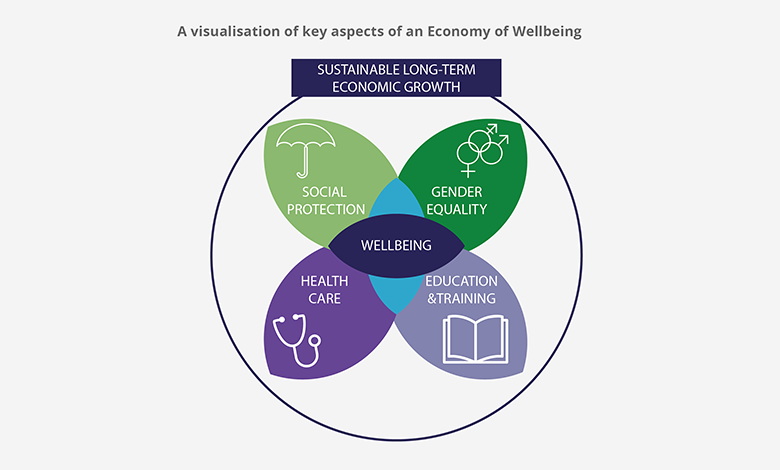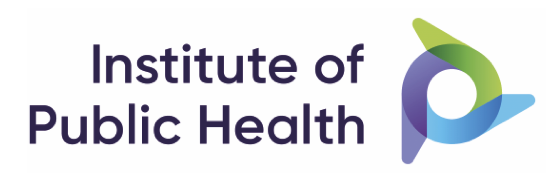A wellbeing economy holds potential for a healthier future for people and planet

Putting health and wellbeing at the heart of policy could help to secure a healthier, more sustainable, and more equitable future in Ireland and Northern Ireland, according to a recently published report and policy brief by the Institute of Public Health (IPH) and EuroHealthNet.
The report, Creating an impactful and sustainable Wellbeing Economy for better public health, and policy brief, Wellbeing Economy: An economy that works for people and planet, explore the potential benefits of adopting a wellbeing economy to reframe how societies define and measure progress.
The report and brief consider how a wellbeing economy could put planetary and human health at the core of all policy and legislation, for all members of society, both now and in the future.
A wellbeing economy moves beyond traditional economic indicators, such as gross domestic product (GDP), to include a range of new indicators that capture and track wellbeing, happiness, social cohesion and other aspects of health.
By putting health and wellbeing at the heart of all policy, a wellbeing economy places greater emphasis on disease prevention, health promotion, and tackling factors that influence and shape our health, such as, clean air, housing, food, and systemic inequality.
The report considers how wellbeing economy concepts are being progressed and applied globally. It details, for example, how the Welsh Government has introduced a Future Generations Act, which legally mandates the consideration of long-term wellbeing in policymaking and public services.
It highlights the adoption of a wellbeing budget by the New Zealand Government, which puts wellbeing and the environment at the core of national policy, using social, environmental, and fiscal indicators to guide funding.
The joint report also considers how Ireland and Northern Ireland could capitalise on the wellbeing economy concept.
Ireland has been developing a Wellbeing Framework since 2021 and could benefit from continued investment, a greater focus on health as an asset, as well as greater alignment between the framework being developed and current health policies, such as Healthy Ireland and Sláintecare. Ireland’s Wellbeing Framework, which includes 35 indicators across 11 dimensions that encompass quality of life, equality, and sustainability, is due for review by 2026.
In Northern Ireland, the report highlights an opportunity to build on previous work collating data from wellbeing indicators for the UK Office for National Statistics (ONS).






